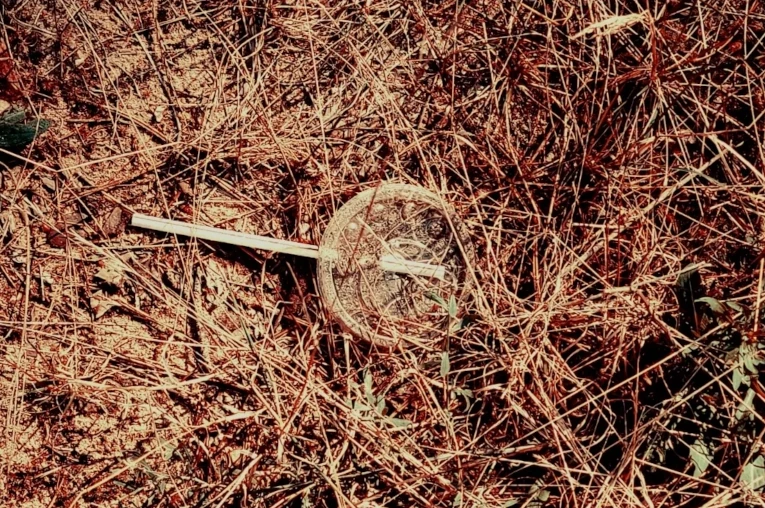
Life with plastic, it’s fantastic
One of the biggest misconceptions that arises living inside the capitalist metropolis is the notion that we are capable of living free of contradiction. Pro-life politicians pay for abortions for their mistresses; climate activists fly around the world to promote carbon neutrality. We too often discount actions and ideas on the basis of the ad hominem fallacy which can be aimed at even the most virtuous. That’s not to say that the Barbie movie, or the doll created by the kid-capitalism juggernaut Mattel, is exemplary of the better world many of us are fighting to construct. But the predictable conservative condemnation has been largely misplaced, yet another virtue signaling distraction from a continually crumbling consumerist culture.
Every minute that led up to my Barbie experience was rife with contradiction. Just what does a cis white man from the US who typically prefers the sci-fi and nonfiction genres think he’s doing attending a screening in London about a child’s toy he’s never once owned? Surely Oppenheimer would have been the more obvious choice. Yet I am like a moth to the flame, intrigued by the prevalence of memes flooding my feed in recent days crying controversy.
Settling into my spot, squished between two sets of teens, because purchasing a single ticket for an assigned seat in an isolated part of the row is apparently not “proper”, I begin to dig into my half-salt, half-sweet bag of popcorn as my first foreign cinema experience commences. After sitting through a dizzingly dozen or so British television adverts (while those around me stared vapidly at their phones), followed finally by a few actual movie previews (my popcorn now half gone), we shed off the consumerist veil surrounding the “radical” feminist agenda propaganda piece and began our indoctrination.
The first scene sets up a brief prehistory of the Barbie universe with a parody of the film 2001 – a space odyssey that unsurprisingly lacks a female perspective throughout its 139 minute run time. Kubrick, like many of the heralded directors of the cold war era, provided rich tapestries of cinematic art that were often completely devoid of any sense of femininity. Barbie simultaneously tips the hat and pokes fun at these titans of old, including Scorsese later in the film; as the newly patriarchal Barbieland is filled with Barbies asking their Kens to both watch the godfather and talk about it at the same time. The Bechdel test uses some pretty simple metrics to determine whether women are equally represented in film: a movie passes if it includes two females speaking to each other about something other than men. Of the three movies mentioned in this paragraph, guess which one passes.
Barbieland imagines more than just a world of life in plastic, but a place where the matriarchy rules mightily. It is depicted as a direct reflection of the real world, a place where women have been systematically relegated to ancillary positions within a society that owes so much of its “success” to them. What would Joseph Smith and FDR have gotten up to if they hadn’t had doting mothers making their meals and subsidizing their schooling? What’s known in feminist economics as the “care economy” is the forgettable fact (at least to many men) that without the unpaid labor that constitutes a majority of the beginning and ending of human life, an economic system like capitalism would never have gotten off the ground (obviously the transatlantic slave trade played a big part too, but that’s a subject for a different article entirely.)
Barbie plays and preys on the patriarchal world most know and few love. In Barbieland all of the major jobs are naturally held by women, while the men exist primarily as dance partners and skill-less life guards. As Margot Robbie’s Barbie heads into the real world, she quickly comes to understand how it feels to be objectified in a society dominated by men. While the movie displays a somewhat exaggerated version of the reality – as any world with Will Ferrell playing a CEO would – director Greta Gerwig does well to accurately reflect the conflicting feelings women experience as they nurture a world that wasn’t built for them.
“You have to have money but can’t ask for money.”
“You have to be a boss but you can’t be mean.”
Gloria, the human symbiote tied to main character Barbie delivers a powerful monologue at the beginning of the third act which serves as an anchor point for the film.
“You’re supposed to stay pretty for men but not so pretty you tempt them too much or you threaten other women.”
“Always be grateful but never forget the system is rigged so find a way to acknowledge that but also always be grateful.”
“You have to never get old, never be rude, never show off, never be selfish, never fall down, never fail, never show fear, never get out of line. It’s too hard, it’s too contradictory, and nobody gives you a medal and says ‘thank you'”.
As someone who has never had to experience what it feels like to be a woman in the 21st century, to feel both empowered (because there has never been a better time in history to be a woman) and crippled by persistent social, economic and political boundaries that hinder true equality (because feminism is the longest ongoing struggle in human history), I was moved by the film.
Yet it is true that the movie serves as a vessel that promotes endless economic growth in the form of single use plastic – find me a Barbie that has been played with for a day that still has both high heels on. As a conservationist it is a shuddering thought to imagine how much degradation will be added to an already massively deteriorated environment because of the hoopla surrounding this film. As I exited the theater, staff were literally rolling out a red carpet to accompany pink glitter, popcorn and lollipops to set the stage for the “prime time” showing that was no doubt occurring in thousands of similar venues around the world. Extrapolating that sort of waste gives activists like me aneurysms.

Life is your creation
The film’s critics will say Barbie is over-the-top, an unrealistic depiction of modern life in the global north, a film that will set back gender relations decades. They will call it a gross oversimplification of gender dynamics, a sieve for kid-capitalist corporation Mattel to drive sales in the all-too-important third quarter. While some of those critiques may have validity, the movie can also have a point worth understanding. The contradictory nature of human existence allows for something to be positively and negatively impactful. I can despise the environmental effects of this film while also enjoy how well it encapsulated the female perspective. Life is more than just your creation. Life is complicated, nuanced, contradictory, deleterious, fantastic and yet also full of plastic. We can exist in world that is both creating something better and destroying itself at the same time. That’s why I went to the Barbie party.





